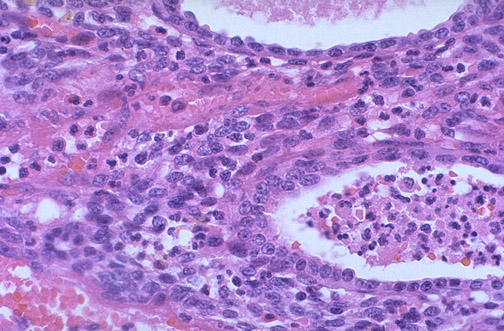|
There are scattered neutrophils in glands and stroma, indicative of acute endometritis, a condition that most often is a complication of childbirth ("puerperal sepsis" or "post-partum fever"), with organisms such as group B Streptococcus and Staphylococcus aureus. With good obstetrical care, this condition is uncommon, but throughout human history it has accounted for significant maternal mortality.
Historical note: One of the earliest examples of the control of infection through proper hand washing was instigated by Ignác Semmelweis, a Hungarian obstetrician working in the Vienna General Hospital in the 1840's. He was puzzled by the high mortality of women due to "post-partum fever". Semmelweis noted that physicians and students would often come straight from the anatomy dissecting rooms and examine patients directly without washing their hands. He instigated a hand washing procedure, and statistics fully justified his hygenic reform: mortality due to post-partum fever dropped drastically. Hand washing continues to be an important means of infection control. |






